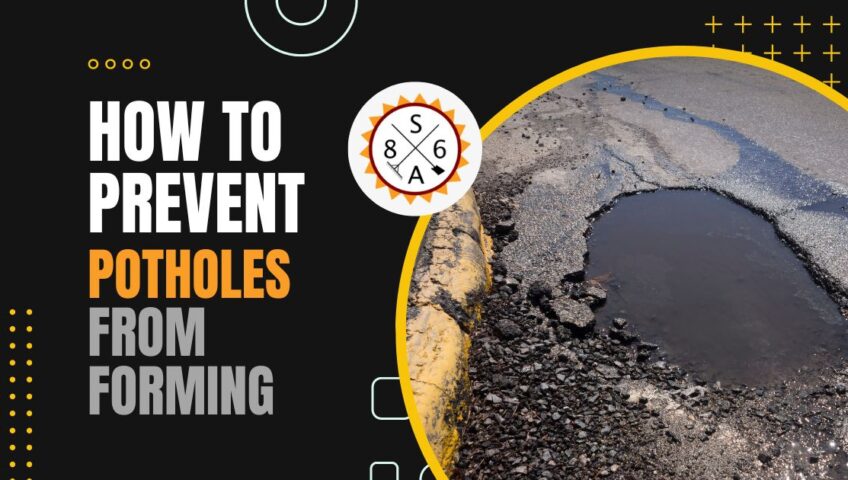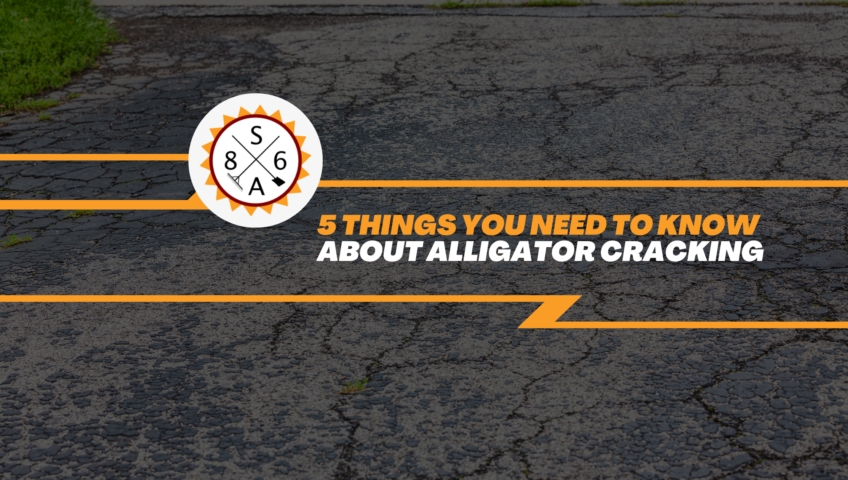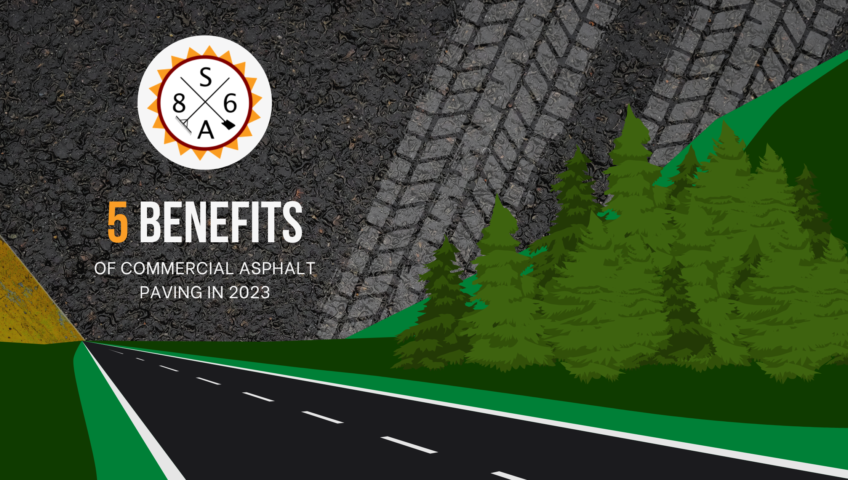
How to Prevent Potholes from Forming
Asphalt potholes are a hazard that you want to avoid whenever possible. Driving on potholes can lead to popped tires, and other damage to your vehicle. If you own a parking lot with potholes, people can get hurt if they don’t see a pothole while walking. Asphalt companies will encourage you to have potholes on your property fixed to avoid damage to vehicles or personal injuries. Preventing asphalt potholes from forming can keep your driveway or parking lot safe for use.
Clean the Driveway or Parking Lot Every Week
The best way to catch cracks or small potholes early is to have a weekly cleaning schedule for your driveway or parking lot. This can be done using a simple broom, hose, or blower. When you check your driveway weekly, and clean it off, you are going to notice any problems as soon as they begin.
Patch Any Cracks Immediately After Discovery
If you find a crack in your asphalt, this should be repaired right away. Asphalt companies are usually available quick to take care of small cracks you uncover during a routine cleaning. When you ignore a crack in your asphalt, the problem is only going to get worse over time. Water can get below the surface of your asphalt through a crack, and wreak havoc with your sub-structure below.
Invest in Asphalt Sealing Every Few Years
The asphalt on your driveway is going to fade over time. To keep the structural integrity of your asphalt intact, have the driveway sealed every two to three years. Asphalt companies will apply a thin layer of asphalt onto the existing surface, where it will then protect your driveway for a few years. Once the seal has worn off, you can apply another coat.
Remove Weeds From Your Driveway
Weeds can get into the cracks or crevices of your asphalt, and will continue to grow if you don’t remove them. As weeds grow, they are going to multiply. This will cause a crack to widen further, and eventually a pothole will form. If you find weeds in your driveway, take the time to remove them periodically. Use a spray to prevent weeds from growing in the cracks of your driveway if possible.
Clean Up Oil Stains Immediately
Oil should never be left to sit on your driveway, as this is going to destroy the asphalt. Oil spills are messy, and the oil is hazardous enough to cause damage to the asphalt. If the oil remains without getting cleaned up, you will eventually have cracks and potholes form because of the damage.
Improve the Drainage of Your Parking Lot or Driveway
If you have problems with puddles forming on your asphalt, this is going to lead to the formation of asphalt potholes. When there is a puddle, this means the water is not draining from your property adequately. Standing water breaks down the surface of your asphalt, leading to weak, cracked asphalt that starts to sink.
Pay attention to any problems with your asphalt surface, and contact an asphalt company for crack repair and pothole filling if you need it. Take the time to clean your asphalt weekly, and deal with small repairs quickly to avoid a complete failure of your asphalt surface.
Asphalt potholes are a hazard that you want to avoid whenever possible. Driving on potholes can lead to popped tires, and other damage to your vehicle. If you own a parking lot with potholes, people can get hurt if they don’t see a pothole while walking. Asphalt companies will encourage you to have potholes on your property fixed to avoid damage to vehicles or personal injuries. Preventing asphalt potholes from forming can keep your driveway or parking lot safe for use.
Clean the Driveway or Parking Lot Every Week
The best way to catch cracks or small potholes early is to have a weekly cleaning schedule for your driveway or parking lot. This can be done using a simple broom, hose, or blower. When you check your driveway weekly, and clean it off, you are going to notice any problems as soon as they begin.
Patch Any Cracks Immediately After Discovery
If you find a crack in your asphalt, this should be repaired right away. Asphalt companies are usually available quick to take care of small cracks you uncover during a routine cleaning. When you ignore a crack in your asphalt, the problem is only going to get worse over time. Water can get below the surface of your asphalt through a crack, and wreak havoc with your sub-structure below.
Invest in Asphalt Sealing Every Few Years
The asphalt on your driveway is going to fade over time. To keep the structural integrity of your asphalt intact, have the driveway sealed every two to three years. Asphalt companies will apply a thin layer of asphalt onto the existing surface, where it will then protect your driveway for a few years. Once the seal has worn off, you can apply another coat.
Remove Weeds From Your Driveway
Weeds can get into the cracks or crevices of your asphalt, and will continue to grow if you don’t remove them. As weeds grow, they are going to multiply. This will cause a crack to widen further, and eventually a pothole will form. If you find weeds in your driveway, take the time to remove them periodically. Use a spray to prevent weeds from growing in the cracks of your driveway if possible.
Clean Up Oil Stains Immediately
Oil should never be left to sit on your driveway, as this is going to destroy the asphalt. Oil spills are messy, and the oil is hazardous enough to cause damage to the asphalt. If the oil remains without getting cleaned up, you will eventually have cracks and potholes form because of the damage.
Improve the Drainage of Your Parking Lot or Driveway
If you have problems with puddles forming on your asphalt, this is going to lead to the formation of asphalt potholes. When there is a puddle, this means the water is not draining from your property adequately. Standing water breaks down the surface of your asphalt, leading to weak, cracked asphalt that starts to sink.
Pay attention to any problems with your asphalt surface, and contact an asphalt company for crack repair and pothole filling if you need it. Take the time to clean your asphalt weekly, and deal with small repairs quickly to avoid a complete failure of your asphalt surface.




